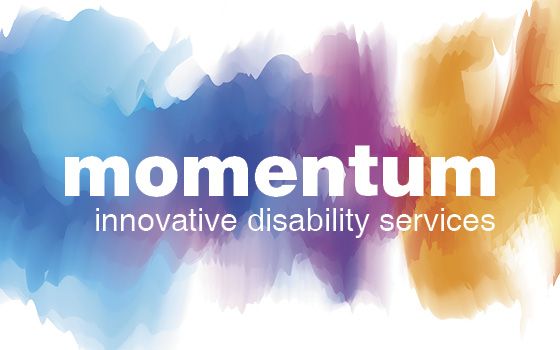
How People-First Language Can Change Lives
 If you’ve read UCPLA Chief Strategy Officer Becky Hansen’s blog “Emma’s Story“, which I hope you do because it’s both heartbreaking and thought-provoking, you may already have a basic understanding of why people-first thinking and language are absolutely vital to providing quality, dignified care and supports to individuals with intellectual and developmental disabilities.
If you’ve read UCPLA Chief Strategy Officer Becky Hansen’s blog “Emma’s Story“, which I hope you do because it’s both heartbreaking and thought-provoking, you may already have a basic understanding of why people-first thinking and language are absolutely vital to providing quality, dignified care and supports to individuals with intellectual and developmental disabilities.
People-First Language (PFL) is an approach to speaking, writing, and thinking that challenges us to focus on the individual first, literally putting the person before their disability or challenge, by using terminology such as “a person with a disability”, rather than “a disabled person”. This terminology encourages us to remember that, regardless of ability, every person is a unique individual worthy of respect and support.
PFL has its origins in the Disability Rights movement of the 1970s and came into wider use in the 1980s and 1990s when activists began having discussions about subjects like disabilities, HIV/AIDS, and mental health diagnoses and how the terminology in use at the time put unnecessary and negative labels on individuals in our communities.
The first documented use of the term “people-first language” to describe this approach appeared way back in 1988 – so why is that many people, even those who know and work with individuals with disabilities, are just beginning to learn about and use PFL for the first time? Why are we, as a society, finally beginning to appreciate the importance of PFL after 30 years of its existence?
I am sure the answers to these questions are many and varied, and I don’t pretend to have all of them. But I do know that the struggle for people-first language (and everything it stands for) is indicative of a larger battle that individuals with intellectual and developmental disabilities must fight every day to maintain their civil rights and advance full inclusion in our communities.
Viewing these individuals only or primarily through the lens of their physical or intellectual challenges obviously does a huge disservice to them by robbing them of agency and individuality, which are their rights as human beings. But it also robs our communities – of vital perspectives, of engaged members of all abilities, and of the vibrancy of full inclusion.
Although People-First Language may seem like a small step in this fight for civil rights, we at UCPLA see a direct line from addressing the people we serve with respect to supporting them as they realize their uniquely individual aspirations, from voting to living independently to launching a career as an artist. People-First Language is important because it lays the foundation for the way we deliver services and supports that are designed to enable those we serve to maximize their potential and live full lives. But it also paves the way for us to change the way society sees individuals with intellectual and developmental disabilities – to remind everyone we talk to on a daily basis that these individuals are, indeed, people first and should be treated accordingly.
I welcome you to join us in fighting for the civil rights of individuals with intellectual and developmental disabilities and creating more fully inclusive communities. Stay tuned to this blog or check out our Facebook, Twitter, or LinkedIn pages for additional resources.